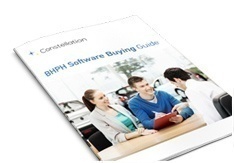I have just returned from the 1st Annual Mid-Atlantic Independent Auto Dealers Association Conference in Atlantic City. It was an excellent conference with 25 educational sessions to assist independent auto dealers. The conference was very well run and, based on everything I heard from dealers in attendance, will continue to grow every year. If you weren’t there, I’d put this one on your calendar as a must attend for next year.
I did hear one thing that alarmed me. More than one BHPH dealer at the conference said they charged a different price for cash deals than they did for finance deals and some even posted both prices on their vehicles.
This practice is not illegal in and of itself. The problem comes in how the difference between the two prices is handled. Unfortunately, in the cases of all the dealers who admitted to this practice at the conference, it was not handled at all. They merely used whichever price applied and completed the transactions in the same way. That is where the law is violated.
In Subpart A of the Truth In Lending Act (TILA), finance charge is defined as “the finance charge is the cost of consumer credit as a dollar amount. It includes any charge payable directly or indirectly by the consumer and imposed directly or indirectly by the creditor as an incident to or a condition of the extension of credit. It does not include any charge of a type also payable in a comparable cash transaction.”
In other words, any amount of money that a customer must pay in order to obtain financing that he or she would not have to pay to purchase that vehicle for cash is considered a finance charge and, as outline in Subpart C of TILA, must be disclosed as such and included in the interest rate calculation. The Act specifically includes such charges as points, loan fees, assumption fees, appraisal or credit report fees, time price differential (charging a different price to finance) or any discounts for the purpose of inducing payment by a means other than the use of credit.
As you can see, to legally charge different cash and finance prices, you would have to sell the vehicle for the cash price and then add the finance difference to the finance charge and include it in your APR calculation. In many cases that would make that rate exceed your state usury rate cap. Most DMS systems are not built to handle this type of transaction either.
The answer is to always charge everyone the finance price. Or, as Tom Hudson put it during his presentation at the conference, “The price is the price is the price.” As the Federal Trade Commission and the Consumer Financial Protection Bureau ramp up their scrutiny of the automotive industry, this will certainly be one of the areas that gets a long, hard look.
Be ready. Be compliant. Make sure everyone in your dealership knows; the finance price is the cash price! Same price – cash or credit.



